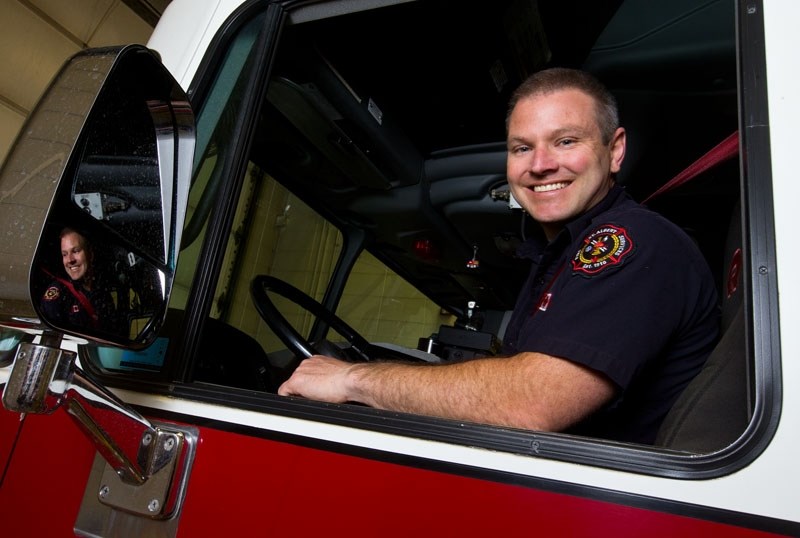Some people take their work home with them at the end of the day. Others, like St. Albert firefighter/EMT Andrew Pearson, take their work on vacation to the beach.
Pearson, who rescued a Mexican boy and his father from drowning on a Puerto Vallarta beach, is being hailed a hero. As far as he’s concerned, anyone else with his training – in his department or any other – would have done exactly the same thing.
“We’ve got awesome training here, we’re highly motivated, and we’re very proud to do what we do,” he said. “Any other firefighter from this department, or any other, would have been right there.”
It was just a matter of being in the right place at the right time.
Pearson was on Mismaloya Beach in Mexico’s Pacific coast with his family Jan. 30, the second-to-last day of their vacation. They were talking about Canada with a couple from Saskatchewan they had met, and literally just hanging out building a sandcastle, but the conditions out in the water weren’t ideal.
“My sister, who’s a big surfer, mentioned those kids shouldn’t be playing by the surf like that,” he said.
A few minutes later, he looked up and saw a Mexican boy, around six to eight years old, who was “climbing the ladder,” which is the classic sign of someone drowning.
Pearson saw he was caught in a riptide, and was going out. He said he didn’t hesitate; his training kicked in and he quickly assessed the situation and determined he had to help despite the obvious risk to himself.
“We’re trained to risk a lot to save a lot,” he explained.
As he was swimming out to the boy he saw another man, whom he later learned was the boy’s father, also swimming out past the surf. Once he pulled the boy to safety and handed him off to the woman from Saskatchewan, he saw that the father was also showing signs of drowning – so back out he went.
The second rescue was not as smooth as the first. The boy’s mother had followed her husband into the water and both grabbed on to Pearson, giving him reason to fear for his own safety. He managed to get the woman off and motion for her to swim to shore, while he carried the now-fatigued father back onto land.
By the time he got the father back, he said he was exhausted and nearly collapsed when the man from Saskatchewan grabbed the father.
At that point he was able to do a rudimentary assessment of the family, determine everybody was OK, and reflect on what had happened. He said if the need arose, he wouldn’t hesitate to do it again – he has the training to know how to handle a situation like that.
“If I hadn’t done it, someone else would have tried it, just like the dad did. And that’s how I found myself with two people to contend with,” he said.
St. Albert Fire Services chief Ray Richards said he was pleased to hear the story of what happened on Pearson’s vacation, but it doesn’t come as much surprise.
“That’s what they train to do all day long, every work day,” he said. “Their instinct is to help other people, and Andrew is one of those people that gets involved in lots of other things. It doesn’t surprise me one bit.”
Water rescue training is somewhat limited in St. Albert, especially in the context of big waves at an ocean beach, but exercises like ice rescue and other training translate to a lot of emergency situations.
“The water is just another media or venue where they could get involved, and he has some previous experience whitewater rafting,” Richards said. “He just combined those skills.”
Pearson said he hopes the message people take away from his story is to be extra cautious around any body of water, and to take all the safety warnings seriously.
“I never want to see that happen to any family, especially a family from the community I serve,” he said.




